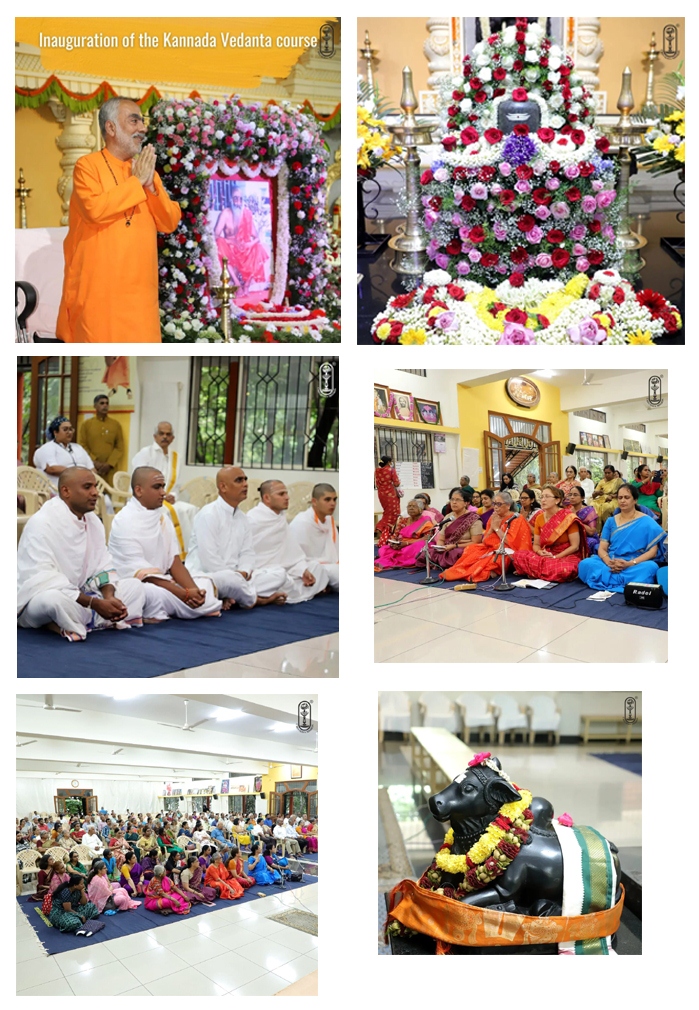Author Archives: Web Master
Little Yash and the Changing Pots
Sri Rudra Suktam
Ishavasya Upanishad
Announcing the 19th Vedanta Course in English
On the blessed day of Hanuman Jayanti, Swami Swaroopananda, Global Head, Chinmaya Mission, announced that the upcoming 19th Residential Vedanta Course in English at Sandeepany Sadhanalaya, Mumbai, will be inaugurated on 15 January 2024, on the auspicious occasion of Makara Sankranti. The Resident Acharya for the Course will be Swami Advayananda.
The last date to apply is 31 July 2023. Detailed information, including eligibility and the application form, is available at
http://sandeepany.chinmayamission.com/.
Those who would like further information may write to:
sandeepany@chinmayamission.com
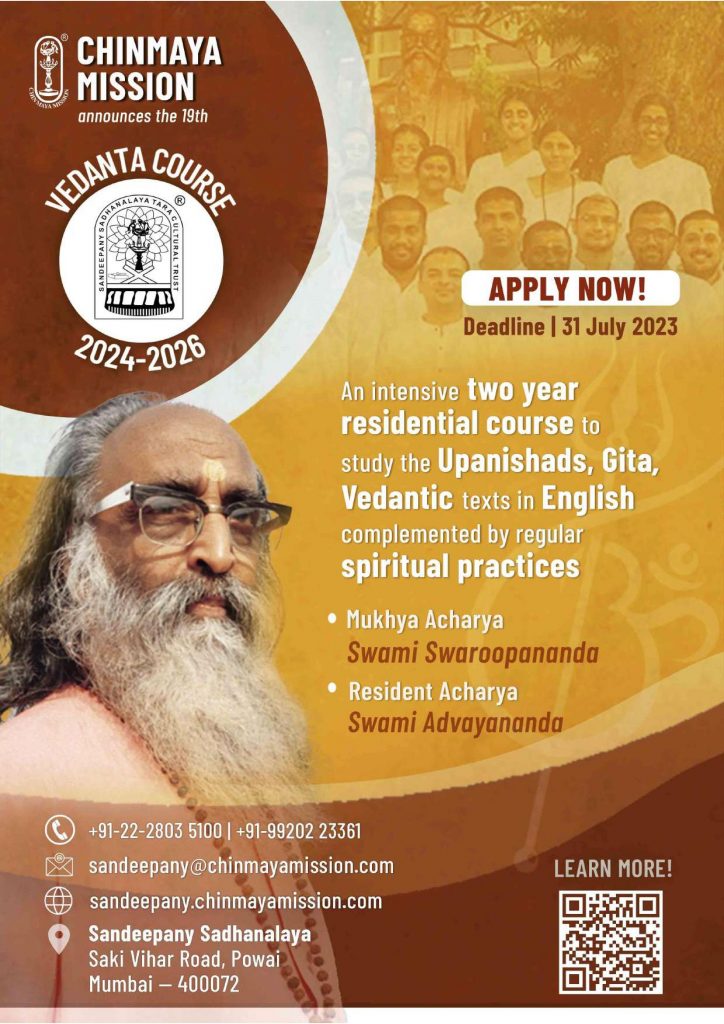
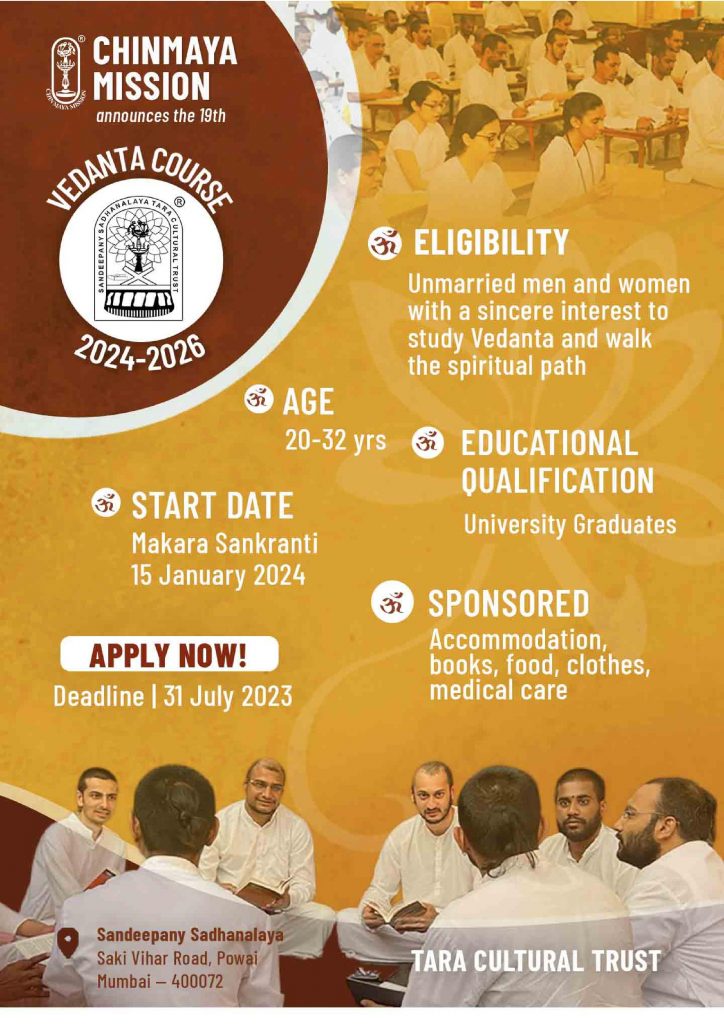
CIF course on Valmiki Ramayana (Bala Kanda)
31 March
New Course on Valmiki Ramayana (Bala Kanda)
Chinmaya International Foundation’s Svadhyaya Series course on Ramayana –Bala Kanda by Swami Ramakrishnananda explores Valmiki’s Ramayana with references to Kamba Ramayana and Kalidasa’s Raghuvamsam.
Through these sessions Swami Ramakrishnananda unlocks Vedantic principles while refuting incorrect beliefs about the scripture and gives practical means to achieve life goals.
Registration link: https://chinfo.org/home/course/valmiki-ramayana-bala-khanda-with-the-fragrance-of-kamban-and-kalidasa/134
Chinmaya International Foundation (CIF)
Mobile : +91 92077 11140 / +91 92077 11511
email: homestudycourses@chinfo.org
website: www.chinfo.org

Sadhana Day at Bengaluru
Sadhana Day was observed on 5 February 2023 at Chinmaya Mission Bengaluru in the presence of Swami Brahmananda. About 250 study group members from all over Bengaluru city participated in the lively discussion on Bhagavad Gita Chapter 9. The members were divided into 10 groups and each were allotted a few shlokas to discuss for one hour. At the end of discussion, the group moderators presented the gist of their discussions that clearly depicted the depth of study and reflection done by each study group member.
Swami Brahmananda was extremely pleased with the quality of discussion as well as presentation. In his Ashirvachana, he described Chapter 9 as a mirror giving a crystal-clear analysis on all questions and doubts regarding Jiva, Jagat and Ishwara that in reality explain our real nature. He explained that doubts come to only an agitated mind while a calm mind rooted in the Self will have no questions. He stressed that all our sadhana should aim at quieting the mind, focusing attention on the changeless substratum. We should analyse our dream state that throws light on how the world is projected and how the single entity becomes both the upadana and nimmitta karana of creation.
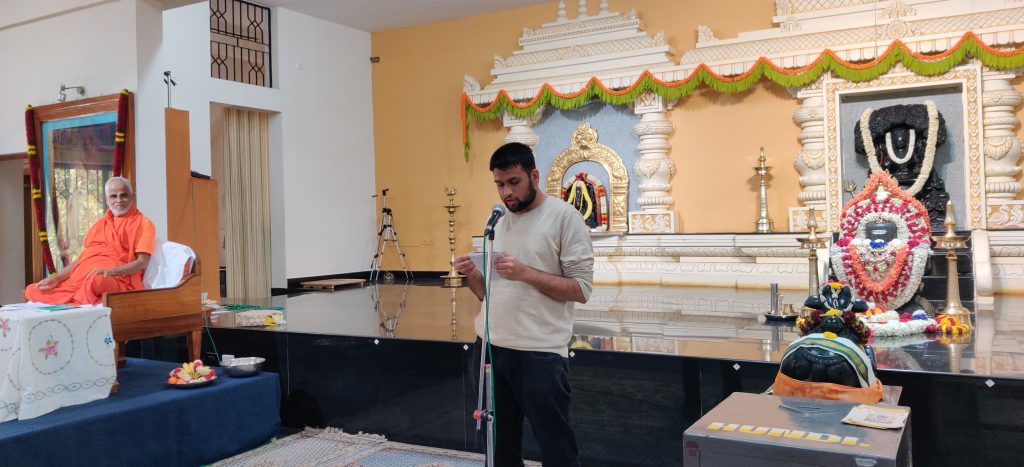
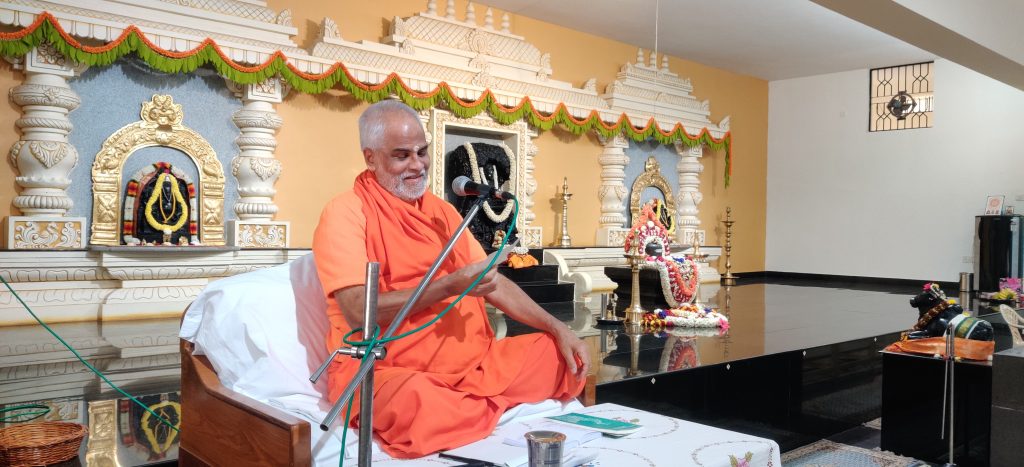
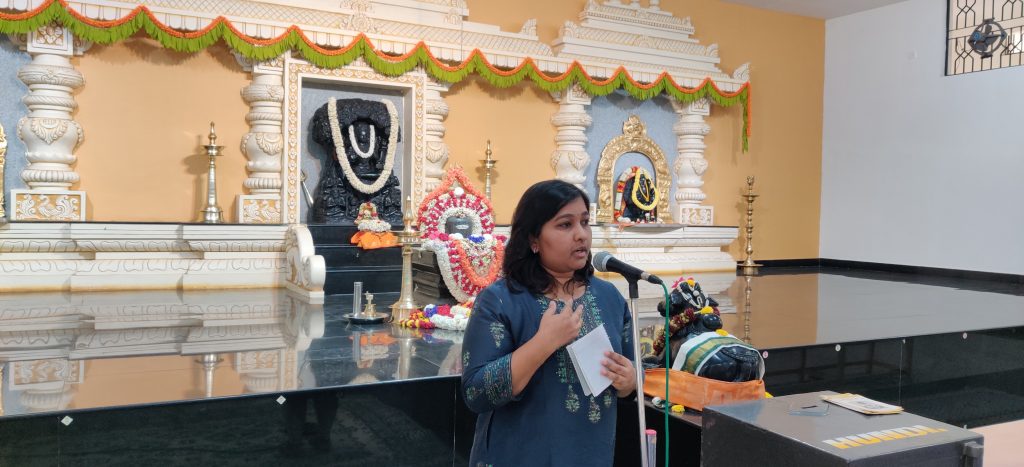
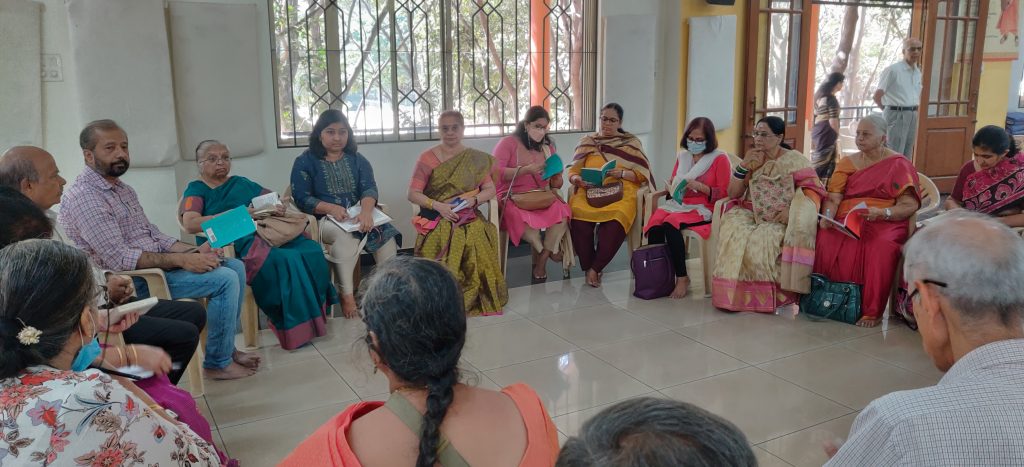
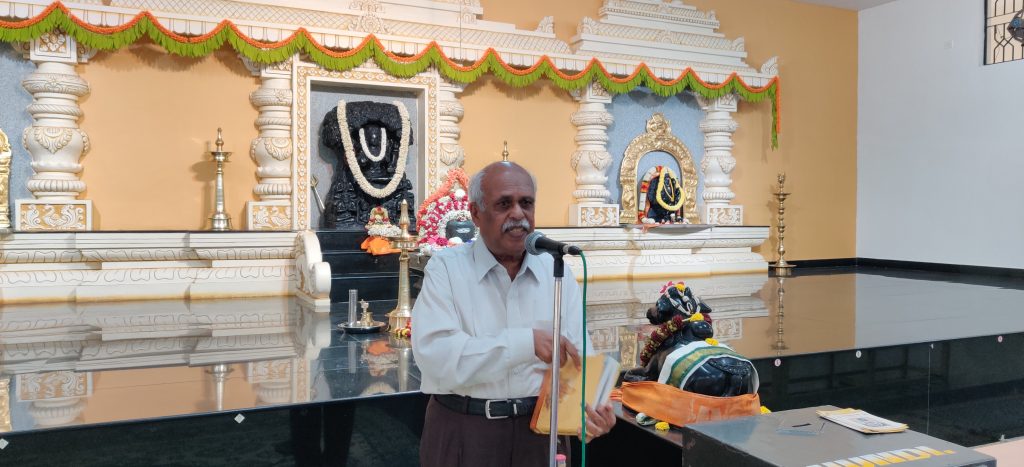
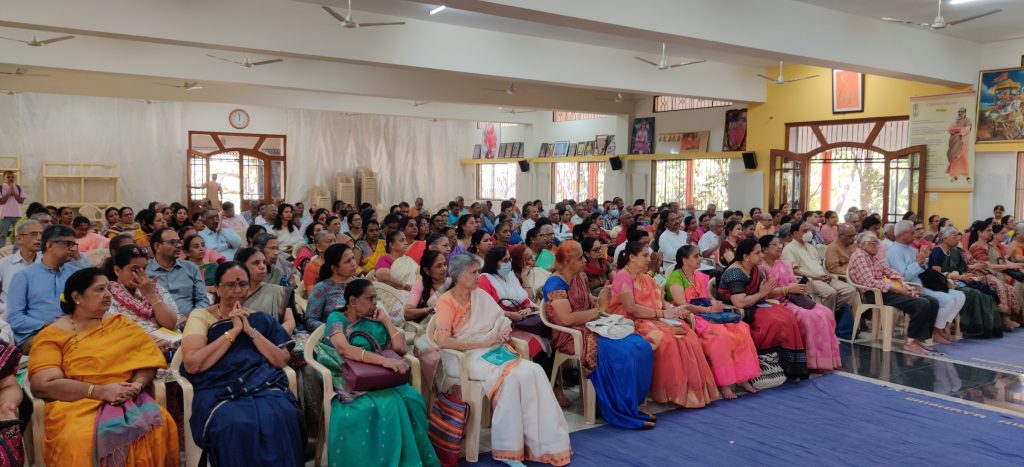
Vanprastha Sadhana Shivir, Rewa Ashram
Vanprastha Sadhana Shivir Program at Rewa Ashram
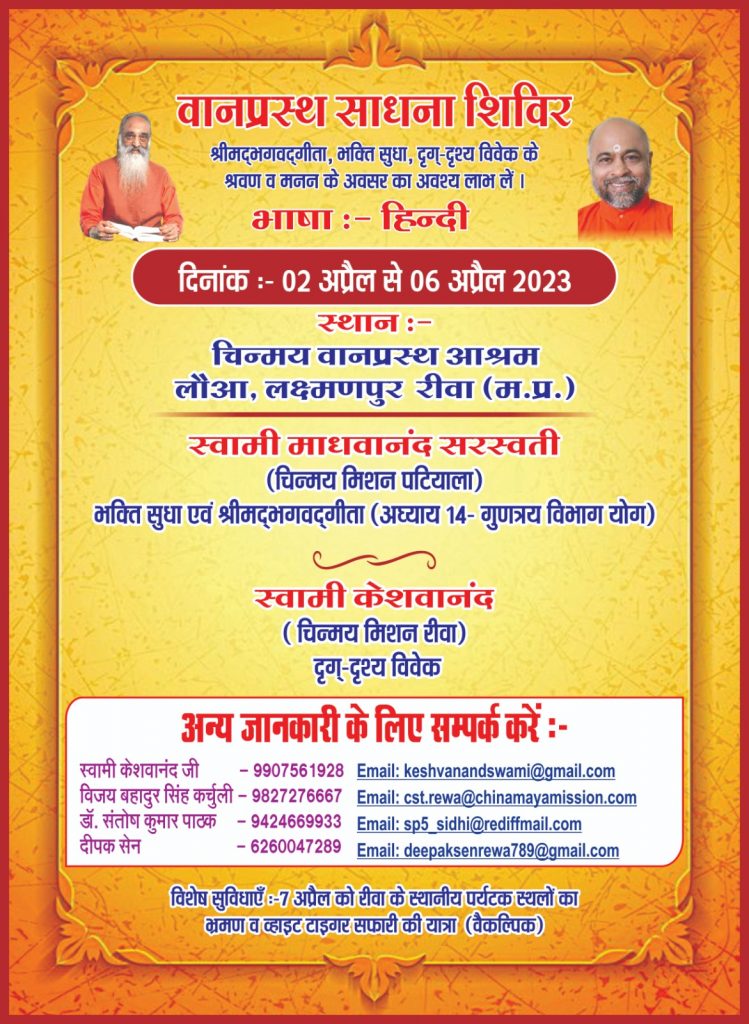
Special Awards for CM Sydney
Chinmaya Mission Sydney, Australia, was presented an award for Special Religious Education at Government schools in New South Wales (Sydney) and also an award for promoting COVID friendly practices and for inspiring the Hindu community and others to be COVID safe.
These awards were give at the Parliament House on 28 November by the Minister of Education and the Minister of Multiculturalism.
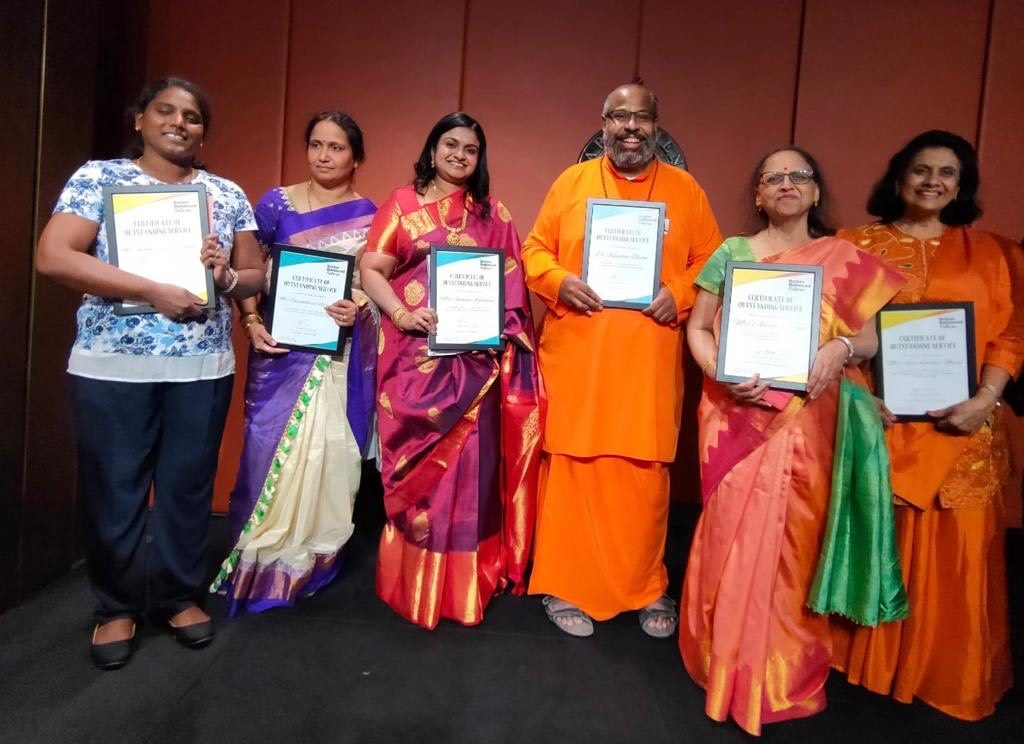
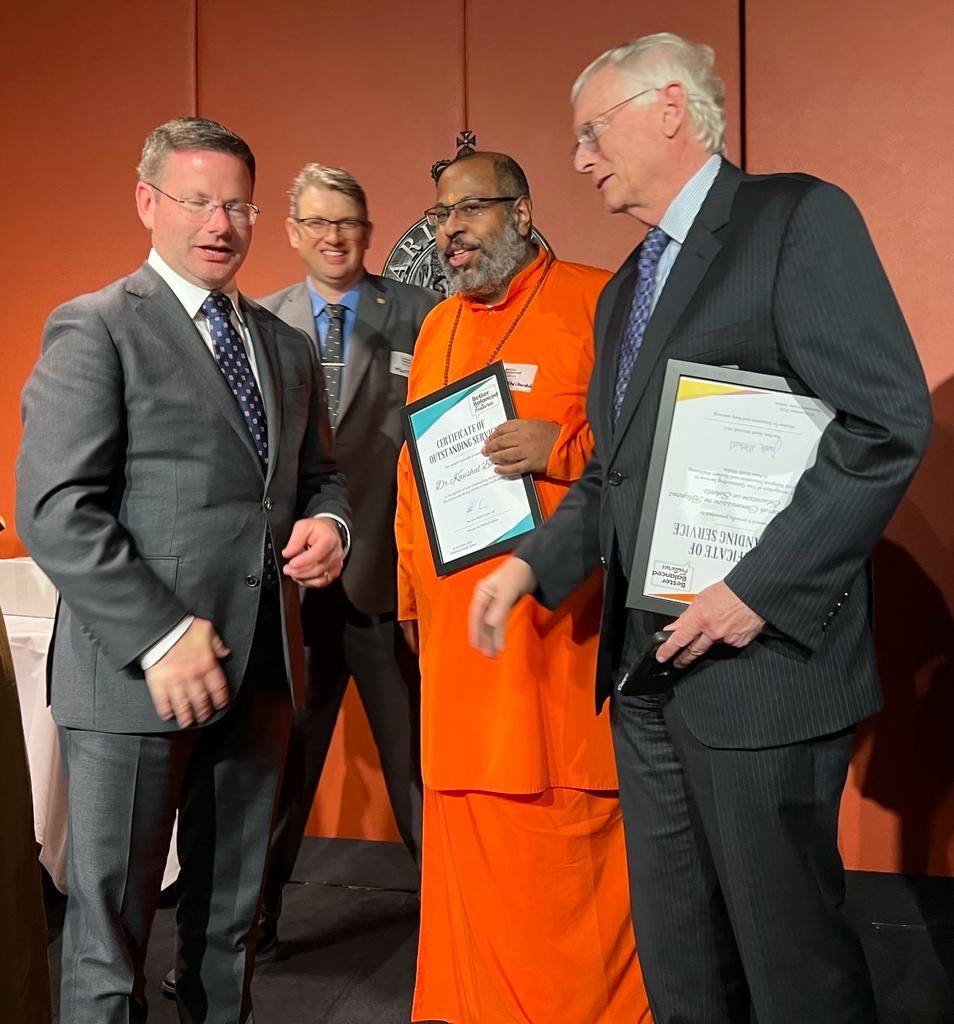
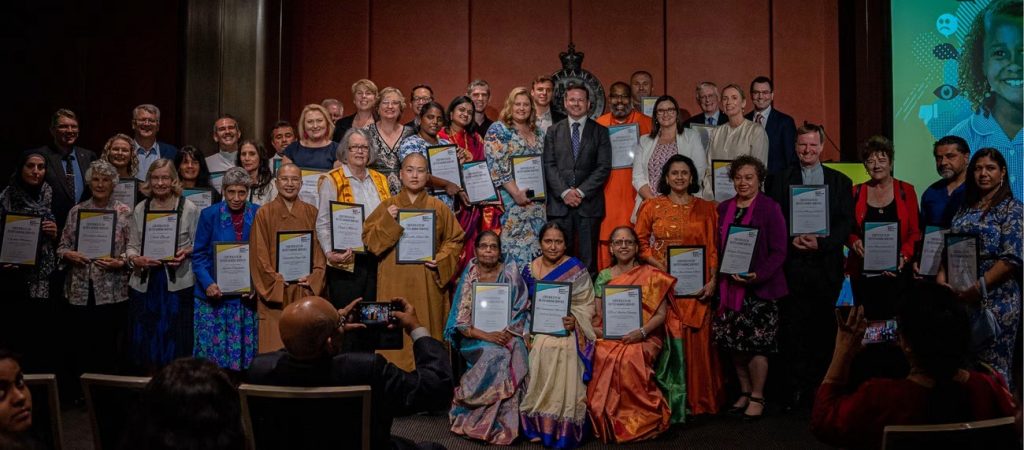
Inauguration of the 2nd Kannada Vedanta Course
On 13 October 2022, Pujya Swami Swaroopananda inaugurated the 2nd Vedanta Course in Kannada at Sripadakshetra, Bengaluru. The Course will be conducted by Swami Adityananda.
In this Course run in the Gurukula mode, students withdraw fully from worldly life and follow a disciplined schedule of classes and activities in an Ashram setting to promote learning, reflection and contemplation. Thereafter, they are encouraged to work in the field as missionaries, although this is not a stipulation for joining the Course.
